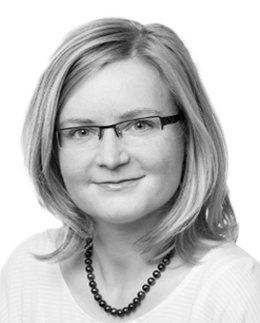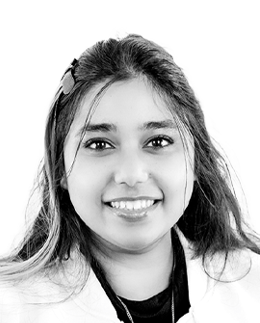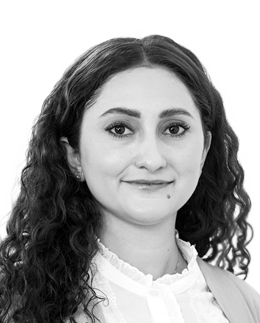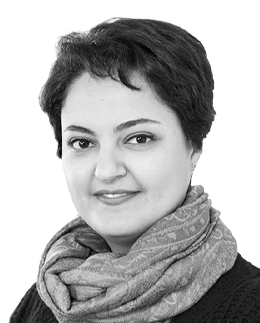Dr. David Broneske studierte Informatik im Bachelor und Master an der Otto-von-Guericke Universität Magdeburg, wo er 2019 promovierte und darauf seine Habilitation begann. Von 2019 bis 2020 übernahm er die Vertretung des Lehrstuhls Datenbank und Informationssysteme an der Hochschule Anhalt in Köthen. Er hat im März 2021 die kommissarische Leitung der Abteilung 4 "Infrastrukturen und Methoden" des Deutschen Zentrums für Hochschul- und Wissenschaftsforschung (DZHW) übernommen.

Dr. David Broneske
Abteilung Infrastruktur und Methoden
Kommissarische Abteilungsleitung
- 0511 450670-454
- Google Scholar
- Orcid
Wissenschaftliche Forschungsgebiete
Forschungsdatenmanagement für Learning Analytics Daten, Hauptspeicherdatenbanken auf moderner Hardware, Interaktive Datenexploration und Visualisierung, Künstliche Intelligenz für Datenbereinigung und Datenanalyse
Liste der Projekte
Liste der Publikationen
SurveyBot: A new era of web survey pretesting.Shahania, S., Spiliopoulou, M., & Broneske, D. (2025).SurveyBot: A new era of web survey pretesting. In I. Maglogiannis, L. Iliadis, A. Andreou, & A. Papaleonidas (Hrsg.), Artificial Intelligence Applications and Innovations. AIAI 2025. IFIP Advances in Information and Communication Technology. Cham: Springer. https://doi.org/10.1007/978-3-031-96235-6_29 |
Towards automatic bias analysis in multimedia journalism.Hinrichs, R., Steffen, H., Avetisyan, H., Broneske, D., & Ostermann, J. (2025).Towards automatic bias analysis in multimedia journalism. Discover Artificial Intelligence, 2025(5/112), 1-28. https://doi.org/10.1007/s44163-025-00362-1 |
Embracing NVM: Optimizing $B^𝜖$-tree structures and data compression in storage engines.Karim, S., Wünsche, F., Broneske, D., Kuhn, M., & Saake, G. (2025).Embracing NVM: Optimizing $B^𝜖$-tree structures and data compression in storage engines. In Binnig, C. et al. (Hrsg.), Datenbanksysteme für Business, Technologie und Web - Workshopband (BTW 2025) (S. 329-333). Bonn: Gesellschaft für Informatik. https://doi.org/10.18420/BTW2025-137 |
A multi-objective evolutionary algorithm for detecting protein complexes in PPI networks using gene ontology.Abbas, M. N., Broneske, D., & Saake, G. (2025).A multi-objective evolutionary algorithm for detecting protein complexes in PPI networks using gene ontology. Scientific Reports, 15. https://doi.org/10.1038/s41598-025-01667-y |
AutoML meets hugging face: Domain-aware pretrained model selection for text classification.Safikhani, P., & Broneske, D. (2025).AutoML meets hugging face: Domain-aware pretrained model selection for text classification. In A. Ebrahimi, S. Haider, E. Liu, M. L. Pacheco, & S. Wein (Hrsg.), Proceedings of the 2025 Conference of the Nations of the Americas Chapter of the Association for Computational Linguistics: Human Language Technologies (Volume 4: Student Research Workshop). Albuquerque, USA: Association for Computational Linguistics. Abstract
The effectiveness of embedding methods is crucial for optimizing text classification performance in Automated Machine Learning (AutoML). However, selecting the most suitable pre-trained model for a given task remains challenging. This study introduces the Corpus-Driven Domain Mapping (CDDM) pipeline, which utilizes a domain-annotated corpus of pre-fine-tuned models from the Hugging Face Model Hub to improve model selection. Integrating these models into AutoML systems significantly boosts classification performance across multiple datasets compared to baseline methods. Despite some domain recognition inaccuracies, results demonstrate CDDM’s potential to enhance model selection, streamline AutoML workflows, and reduce computational costs. |
NVM in data storage: A post-optane future.Karim, S., Wünsche, J., Kuhn, M., Saake, G., & Broneske, D. (2025).NVM in data storage: A post-optane future. ACM Digital Library, ACM Transaction on Storage, 2025. https://doi.org/10.1145/3731454 |
VerbCraft: Morphologically-aware Armenian text generation using LLMs in low-resource settings.Avetisyan, H., & Broneske, D. (2025).VerbCraft: Morphologically-aware Armenian text generation using LLMs in low-resource settings. In ¦. A. Holdt, N. Ilinykh, B. Scalvini, M. Bruton, I. N. Debess, & C. M. Tudor (Hrsg.), Proceedings of the Third Workshop on Resources and Representations for Under-Resourced Languages and Domains (RESOURCEFUL-2025) (S. 111-119). Tallinn: University of Tartu Library, Estonia. |
Tell me more! Using multiple features for binary text classification with a zero-shot model.Broneske, D., Italiya, N., & Mierisch, F. (2025).Tell me more! Using multiple features for binary text classification with a zero-shot model. In IEEE Institute of Electrical and Electronic Engineers (Hrsg.), 2024 International Conference on Machine Learning and Applications (ICMLA) (S. 1613-1620). Jacksonville, Florida, USA: IEEE Xplore. https://doi.org/10.1109/ICMLA61862.2024.00249 |
ADAMANT: Hardware-accelerated query processing made easy.Broneske, D., Burtsev, V., Drewes, A., Gurumurthy, B., Pionteck, T., & Saake, G. (2025).ADAMANT: Hardware-accelerated query processing made easy. In K.-U. Sattler, A. Kemper, T. Neumann, & J. Teubner (Hrsg.), Scalable Data Management for Future Hardware (S. 1-38). Cham: Springer. https://doi.org/10.1007/978-3-031-74097-8 |
Bots in web survey interviews: A showcase.Höhne, J. K., Claaßen, J., Shahania, S., & Broneske, D. (2025).Bots in web survey interviews: A showcase. International Journal of Market Research, 67(1), 3-12. https://doi.org/10.1177/14707853241297009 |
A mediation strategy for communication between an internal chat system and an open source chat system.Obionwu, C. V., Kanagaraj, R. R., Kalu, K. O., Broneske, D., Buch, A., Knopke, C., & Saake, G. (2024).A mediation strategy for communication between an internal chat system and an open source chat system. In Jon-Chao, H. (Hrsg.), New Technology in Education and Training, Select Proceedings of the 5th International Conference on Advance in Education and Information Technology (AEIT 2024) (S. 73-86). Singapore: Springer. https://doi.org/10.1007/978-981-97-3883-0_7 |
Exploring the predictive factors of heart disease using rare association rule mining.Darrab, S., Broneske, D., & Saake, G. (2024).Exploring the predictive factors of heart disease using rare association rule mining. Scientific Reports, 14. https://doi.org/10.1038/s41598-024-69071-6 Abstract
Cardiovascular diseases continue to be the leading cause of mortality worldwide, claiming a significant number of lives each year. Despite the advancements in predictive models, including logistic regression, neural networks, and random forests, these techniques often lack transparency and interpretability, limiting their practical application in clinical settings. To address this challenge, this research introduces EPFHD-RARMING, an innovative approach designed to enhance the understanding and predictability of heart disease through the discovery of rare and meaningful patterns. EPFHD-RARMING utilizes rare association rule mining to [...] Full Abstract: https://www.nature.com/articles/s41598-024-69071-6#citeas |
Expert agent guided learning with transformers and knowledge graphs.Obionwu, C. V., Chovatta Valappil, B. B., Genty, M., Jomy, M., Padmanabhan, V., ... & Saake, G. (2024).Expert agent guided learning with transformers and knowledge graphs. In SciTePress Science and Technology Publications (Hrsg.), Proceedings of the 13th International Conference on Data Science, Technology and Applications (DATA 2024) (S. 180-189). Setúbal, Portugal: Science and Technology Publications. |
Sharing software-evolution datasets: Practices, challenges, and recommendations.Broneske, D., Kittan, S., & Krüger, J. (2024).Sharing software-evolution datasets: Practices, challenges, and recommendations. In Association for Computing Machinery (Hrsg.), Proceedings of the ACM on Software Engineering (S. 2051-2074). New York, NY, United States: ACM. https://doi.org/10.1145/3660798 |
Exploiting shared sub-expression and materialized view reuse for multi-query optimization.Gurumurthy, B., Bidarkar, V. R., Broneske, D., Pionteck, T., & Saake, G. (2024).Exploiting shared sub-expression and materialized view reuse for multi-query optimization. Information Systems Frontiers, A Journal of Research and Innovation. https://doi.org/10.1007/s10796-024-10506-w |
Liste der Vorträge & Tagungen
Seit 03/2021
Kommissarischer Leiter der Abteilung 4 "Infrastruktur und Methoden" am Deutschen Zentrum für Hochschul- und Wissenschaftsforschung (DZHW)
04/2020 - 02/2021
Post-Doc an der Otto-von-Guericke-Universität Magdeburg - Mitarbeiter in Lehre und Forschung
10/2019 - 03/2020
Vertretungsprofessur an der Hochschule Anhalt - Lehrstuhl Datenbank und Informationssysteme
06/2019 - 09/2019
Post-Doc an der Otto-von-Guericke-Universität Magdeburg - Mitarbeiter in Lehre und Forschung
08/2013 - 05/2019
Doktorand an der Otto-von-Guericke-Universität Magdeburg - Mitarbeiter in Lehre und Forschung
2008 - 2013
Bachelorstudium und Masterstudium "Informatik", Otto-von-Guericke-Universität Magdeburg
- SoSe 2016, 2020 & 2021 Advanced Topics in Databases (OVGU; ca. 50 Teilnehmer) - Vorlesung
- WiSe 2020 Data Warehouse Technologies (OVGU; ca. 80 Teilnehmer) - Vorlesung & Übung
- WiSe 2020 Datenbanken I (OVGU; ca. 270 Teilnehmer) - Vorlesung & Übung
- SoSe 2013 & 2020 Datenbanken Implementierungstechniken (OVGU; ca. 40 Teilnehmer) - Übung
- WiSe 2019 Moderne Datenbankkonzepte (HS-Anhalt; ca. 12 Teilnehmer) - Vorlesung & Übung
- WiSe 2019 Datenbanksysteme (HS-Anhalt; ca. 40 Teilnehmer ) - Vorlesung & Übung
- SoSe 2015-2019 Database Concepts (OVGU; ca. 120 Teilnehmer) - Übung
- WiSe 2012-2018 Datenbanken I (OVGU, ca. 270 Teilnehmer) - Übung
- SoSe 2012-2014 Datenmanagement (OVGU; ca. 100 Teilnehmer) - Übung
- 2020 - Distinguished Reviewer at Information Systems, Elsevier
- 2017 - Forschungspreis der Fakultät für Informatik der Otto-von-Guericke-Universität Magdeburg















